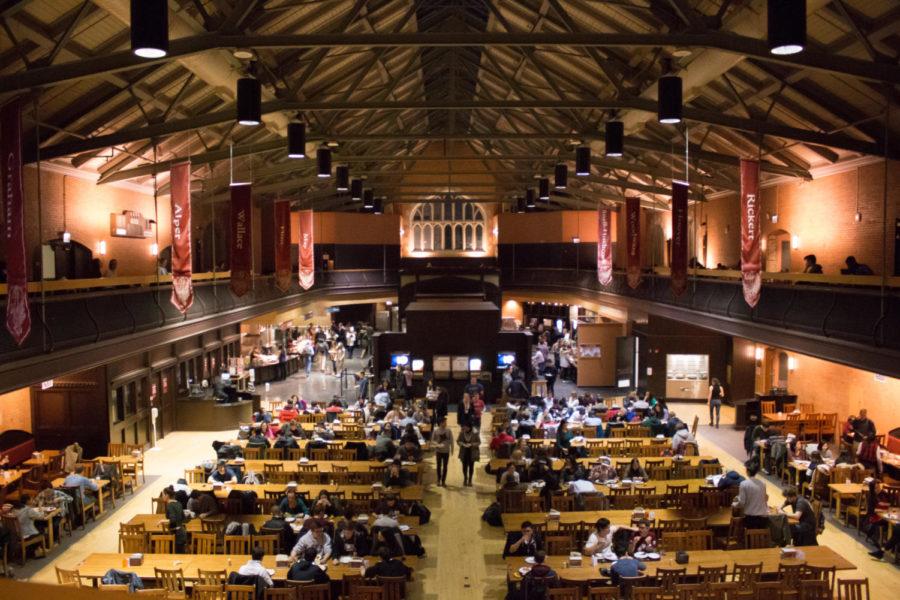As campus started to shut down last week due to the mounting urgency of the COVID-19 pandemic, members of the University community speculated about what would happen to contracted employees not directly employed through the University such as dining hall workers, janitors, and security personnel. With dining halls,dorms, libraries, and other campus facilities closing, some wondered if these workers would be furloughed or laid off.
On Friday, Ivan Samstein, the University’s Vice President and Chief Financial Officer, confirmed in an email to the University community that contracted food service workers will continue to receive pay for spring quarter.
“During this challenging time, we are making a commitment that through our contracts with the relevant vendors, the food service workers at the University, both full- and part-time, will continue to receive their regular pay for the duration of Spring Quarter,” Samstein wrote.
In a separate email, Casey Cook, Associate Vice President for Human Resources, said that non-contract, temporary and seasonal staff employees, as well as unionized staff members ,will receive additional paid time off for use in work disruptions caused by the COVID-19 pandemic.
In a statement to The Maroon, University spokesperson Jeremy Manier said, “The University's revised sick leave policy for COVID-19 applies to University employees. Staff employed by outside contractors receive the benefits that their company provides.”
Food service workers, who work for the University under a contract with foodservice company Bon Appétit, will continue to be paid through Bon Appétit for the duration of the Spring Quarter. However, as they are not University employees, they will not receive additional sick leave from the University.
Staff members who work for the University directly “will be eligible for up to 6 weeks, based upon regularly scheduled hours, of additional paid time off that can be used for all reasons related to COVID-19 during the Spring Quarter, including the inability to work remotely, personal illness, and the need to quarantine or provide family care,” Cook wrote.
Beyond this extra time, employees will be expected to use vacation and personal holiday time. However, “if the staff employee exhausts this time, the University will advance an additional 14 days of sick time,” the email said.
According to Samstein’s email, the University is “working with our food service contractors to establish new roles and responsibilities for their employees to meet pressing needs in our community.”
Manier did not know what these roles would be.
Samstein also said that security and janitorial staff members, who are contracted workers, will continue working during Spring Quarter and be compensated normally through their contractors. These staffers, also not technically University employees, will not receive the additional six weeks of coronavirus-related sick time.
“Many of our other contractors’ employees, such as security and janitorial, are essential to our continuing operations and will continue to perform their job duties and receive their regular pay through their direct employers throughout the Spring Quarter,” Samstein wrote.
UChicago’s approach differs from some of its peer schools. The University of Pennsylvania has laid off its food service workers. Notably, Penn and Chicago both use Bon Appétit. At Penn, students began circulating a petition calling on the University to pay its laid-off food staff.
Harvard University has laid off “nearly all” of its dining workers, though unionized dining workers serving undergraduates will receive 30 days of pay. This has prompted a similar petition among the Harvard University community. Washington University in St. Louis, on the other hand, has committed to financially supporting its contract workers for the remainder of the term. Washington University also contracts with Bon Appétit.








